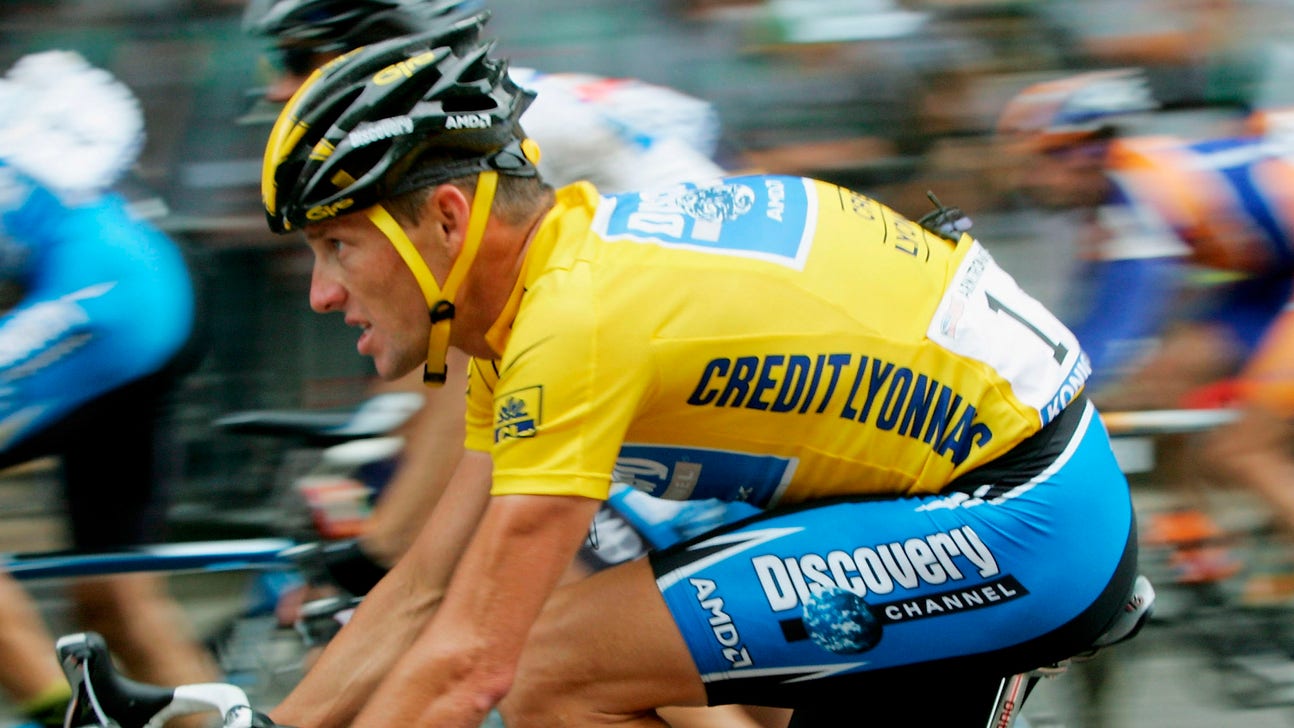
Investigation: Cycling body allowed Lance Armstrong to cheat

Cycling officials let doping flourish and broke their own rules so Lance Armstrong could cheat his way to becoming the superstar the sport badly needed, according to a scathing report into its drug culture.
The International Cycling Union was severely criticized for failing to act during the doping era dominated by Armstrong, but the 227-page report the governing body released early Monday found no evidence that he paid to cover up alleged positive tests.
The report was commissioned by the new UCI leadership to investigate doping that shredded cycling's credibility and led to Armstrong being stripped of his seven Tour de France titles in 2012.
While the year-long probe turned up no major revelations, and found no proof that a payment Armstrong made to the UCI was to cover up a positive test, it suggested doping is still rife in top-level road cycling.
Still, the UCI hopes publishing the report can help turn the page on the doping era and instill confidence that cycling is serious about stamping out cheating.
The UCI's lack of will to curb Armstrong and other riders in an era "infested" with use of the blood-boosting hormone EPO is made clear in the Cycling Independent Reform Commission (CIRC) report.
"Going after the cheaters was perceived as a witch-hunt that would be detrimental to the image of cycling," the three-man investigation panel concluded.
Former UCI presidents Hein Verbruggen and Pat McQuaid are described respectively as "autocratic" and "weak" leaders who undermined anti-doping efforts.
The report said both onetime IOC members defended and protected Armstrong "and took decisions because they were favorable to him."
The report confirmed that the first of Armstrong's seven straight Tour titles in 1999 was possible only because the UCI accepted a back-dated prescription for corticosteroids to explain positive tests during the race.
Citing the UCI's "serious breach of its obligations ... to govern the sport correctly," the report also suggested the false medical certificate issued on Armstrong's behalf "should have been reported to the criminal authorities and the relevant medical boards."
Armstrong was among 174 witnesses from across the sport interviewed by the panel chaired by Dick Marty, a Swiss politician who formerly investigated the CIA's use of secret interrogation prisons in Europe.
"No rider came forward to voluntarily admit an anti-doping rule violation," the report said.
Though Armstrong wants to reduce his lifetime ban imposed by the U.S. Anti-Doping Agency, the report did not include any such recommendation.
It did say that many riders believe doping is still widespread as athletes adapt to evade new tests and detection methods, such as the biological passport pioneered by the UCI.
"One respected cycling professional felt that even today, 90 percent of the peloton was doping," the report said. "A common response to the commission, when asked about teams, was that probably three or four were clean, three or four were doping, and the rest were a `don't know.'"
It said the "generally sophisticated" cheating is likely done outside team control by riders meeting with "doping doctors."
However, clean riders today have a chance of being competitive, helped by the biological passport which monitors their blood changes over time. The micro doses of doping products now used, the report said, boost performance by just "3-5 percent gains, instead of 10-15 percent in the EPO era."
The UCI of Verbruggen's era was criticized for "inadequate" policies to combat doping, tolerating use of banned drugs and seeing only excessive use as a health problem.
The report noted that Verbruggen, "with his business experience" as a marketing executive, saw the potential appeal of Armstrong returning as a cancer survivor to cycling after scandal blighted the 1998 Tour.
"UCI saw Lance Armstrong as the perfect choice to lead the sport's renaissance," the report said, adding, "the fact that he was American opened up a new continent for the sport."
Despite the close relationship, the panel said it found no evidence of corruption in Armstrong's payments to the UCI totaling $125,000, allegedly to cover up his suspicious samples for EPO at the 2001 Tour de Suisse and 1999 Tour de France.
Armstrong said in a statement Sunday he was "deeply sorry for many things I have done."
"I am grateful to CIRC for seeking the truth and allowing me to assist in that search," Armstrong said ahead of seeing the report.
The panel found other faults with the UCI's former leaders: a lack of transparency in UCI finances, interference in election campaigns, publicly criticizing whistleblowers and waging personal disputes with other stakeholders.
Verbruggen and McQuaid both met with Marty's panel, which noted that some potential witnesses refused interviews.
"The Commission also had no coercive measures against people who may have lied during their interview," the report said, acknowledging that expectations for its work "were unrealistic in what could be achieved, given the scale of the problems."
Marty was also mandated to recommend ways the UCI could improve its anti-doping policies.
These included closer investigative links with governments and other sports bodies; intelligence-led probes of riders and support staff; encouraging whistleblowers; taking samples from suspected dopers at any time of night; and routinely re-testing samples when scientific advances allow.